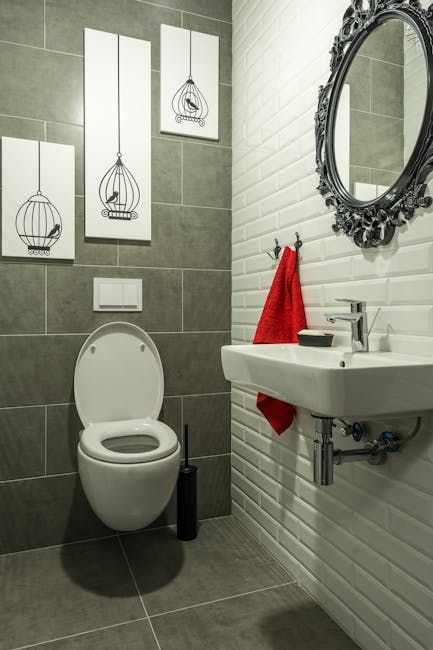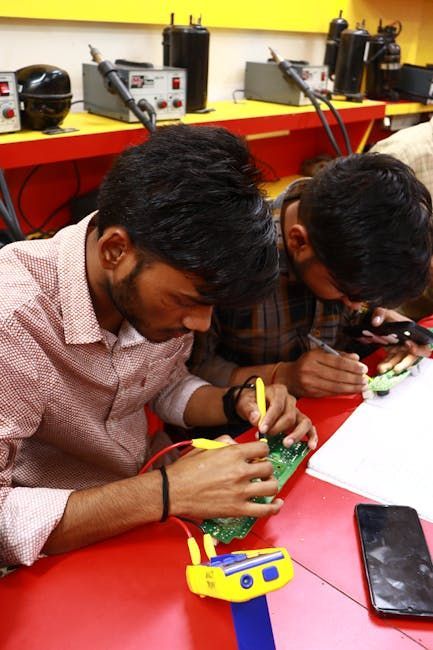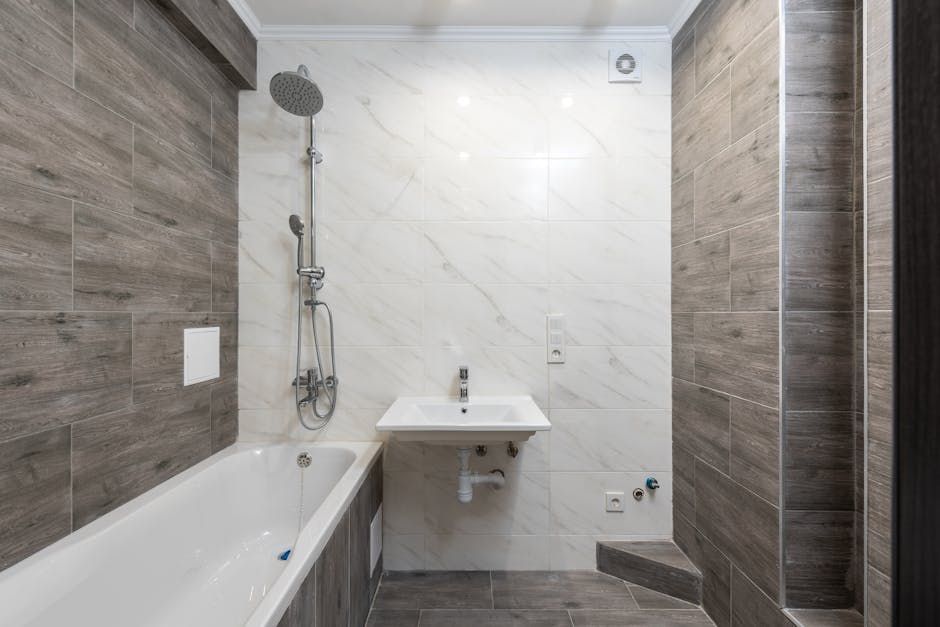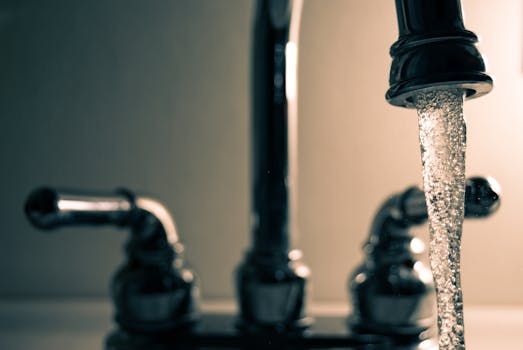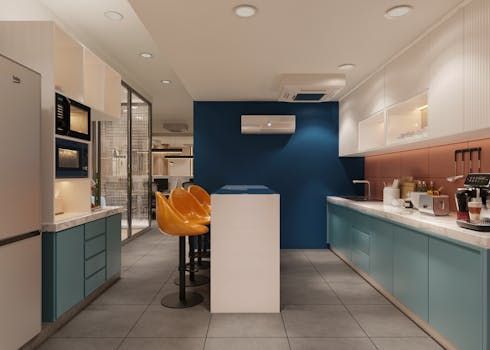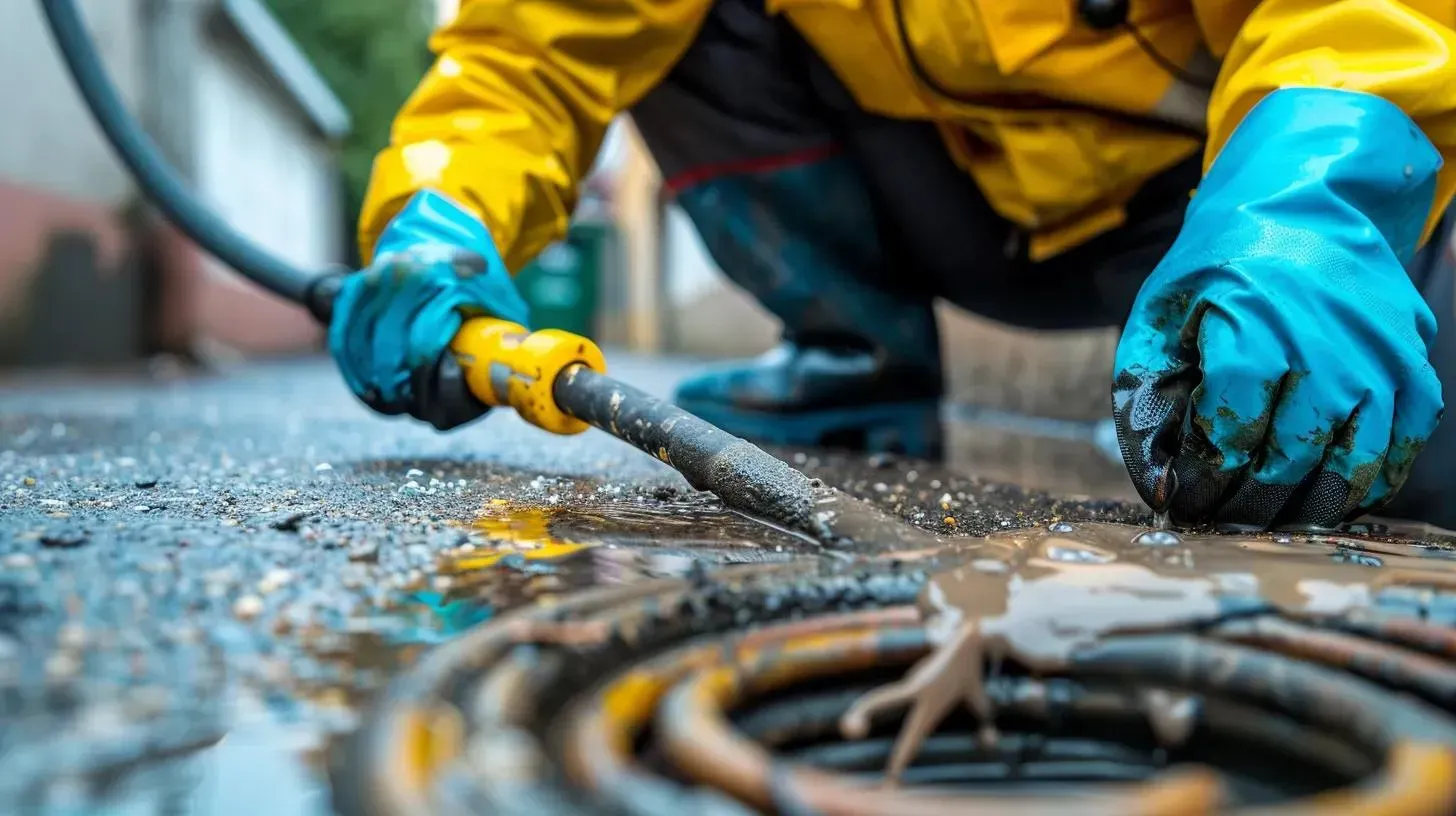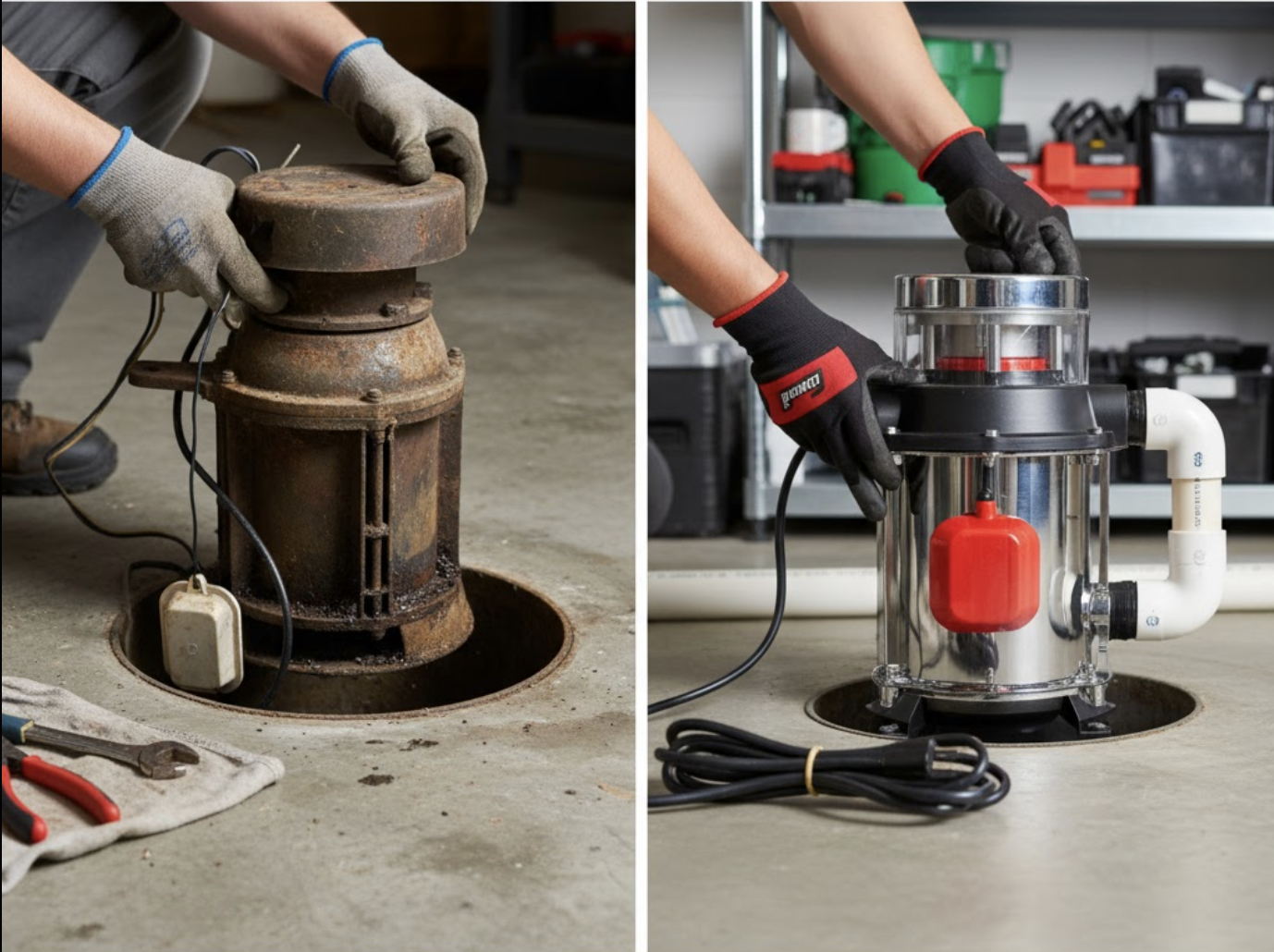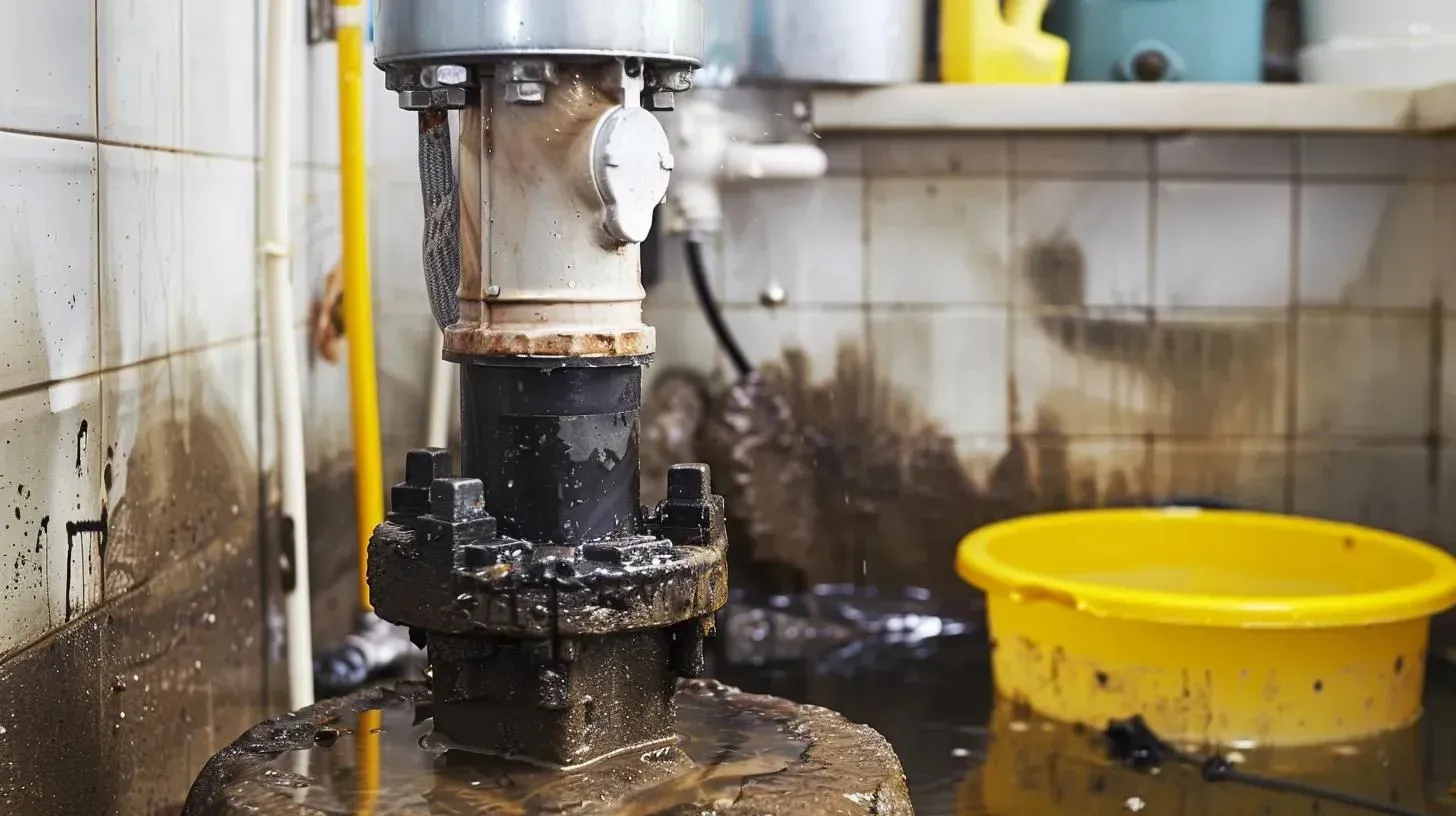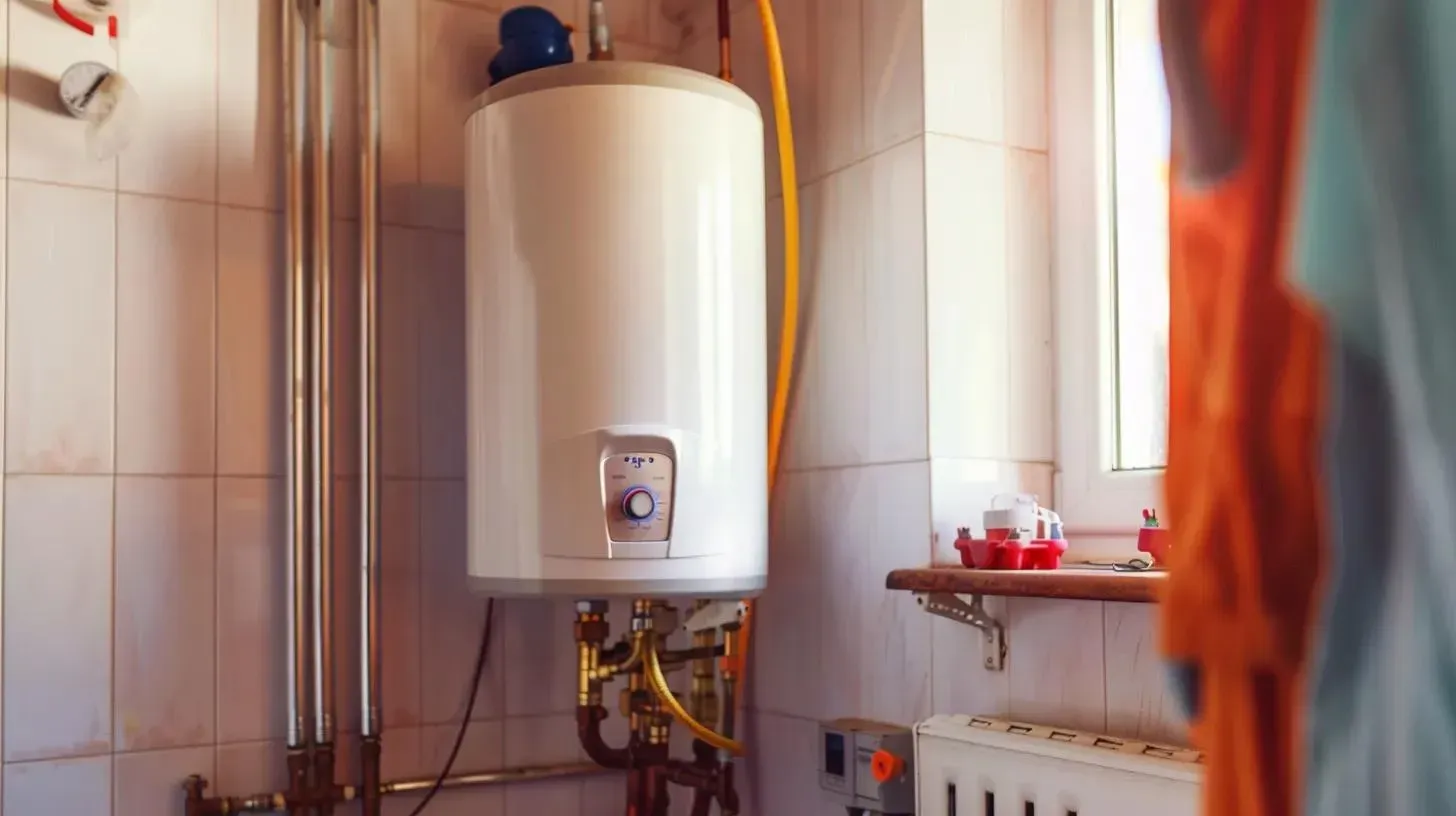Stay Leak-Free: Recommended Plumbing Maintenance Intervals
Avoid Costly Disasters with Routine Plumbing Maintenance
Routine plumbing maintenance is crucial for avoiding unexpected disasters like leaks or clogs that can disrupt your home and lead to costly repairs. When you make it a habit to inspect and maintain your plumbing system regularly, you not only prevent significant issues but also extend the life of your pipes and fixtures.
Here’s a quick look at why routine plumbing maintenance matters:
- Prevention Saves Money: Regular checks help catch problems early, reducing the risk of expensive emergencies.
- Long-term Value: Consistent maintenance keeps your plumbing system running efficiently, saving you both time and money in the long run.
- Peace of Mind: Knowing your plumbing is in top condition means fewer surprises and more comfort at home.
In Denver Metro, where homes can experience unique climate challenges, staying proactive with plumbing care is especially important. From regular leak checks to seasonal preparations, a small investment in maintenance can protect your home from major plumbing disasters.
"Whether it’s checking for leaks, insulating pipes, or conducting regular inspections, investing in preventative maintenance is a wise choice that pays off in the long run."
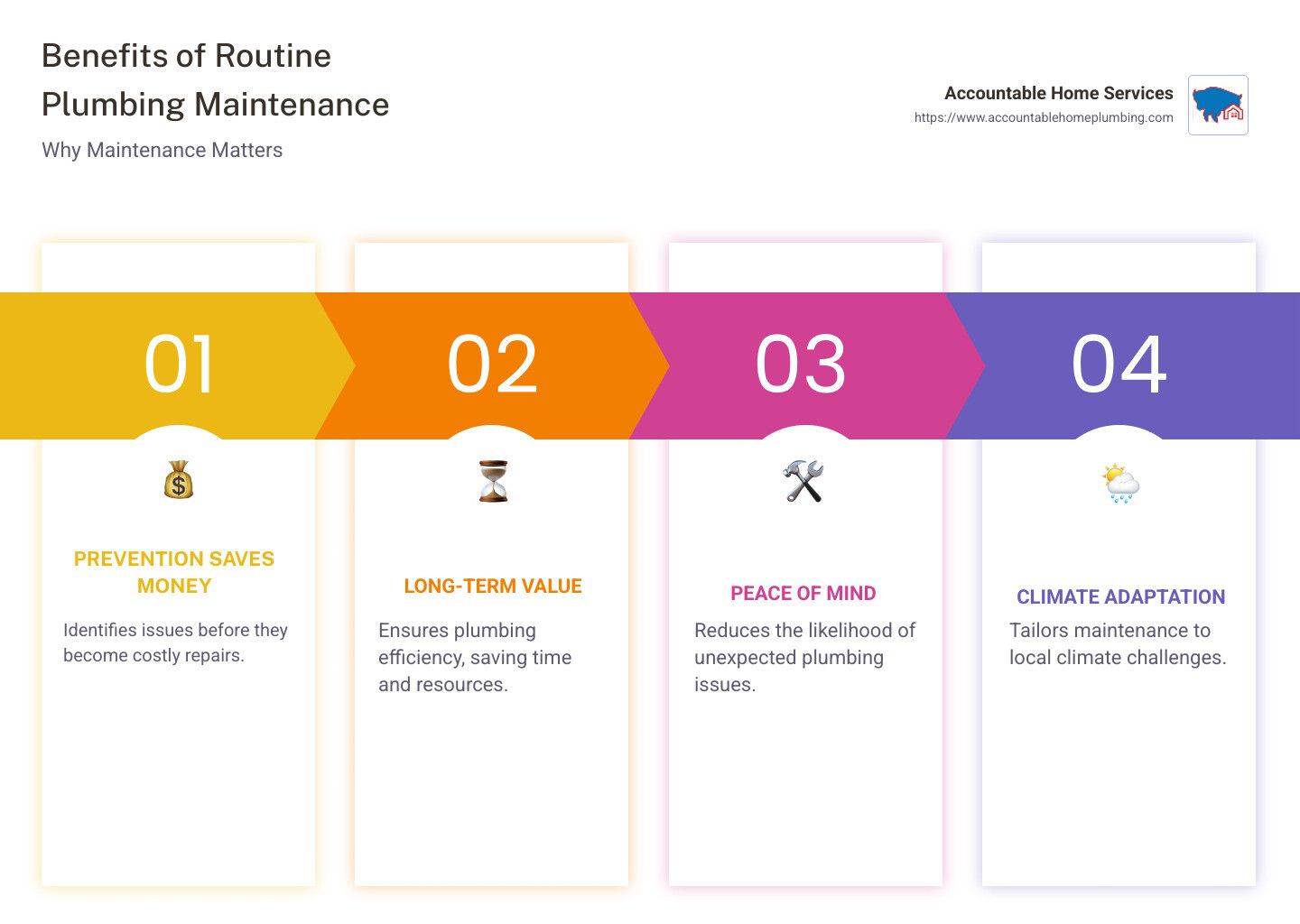
Routine Plumbing Maintenance Essentials
Routine plumbing maintenance is essential for keeping your home running smoothly. Here are some key steps to include in your routine:
Leak Checks
Leaks are a common plumbing issue that can lead to bigger problems if not addressed promptly. Regularly inspect your faucets, showerheads, and visible pipes for any signs of dripping or moisture. Even a small leak can waste a lot of water and cause damage over time.
- Tip: Check under sinks and around toilets for any water stains or dampness.
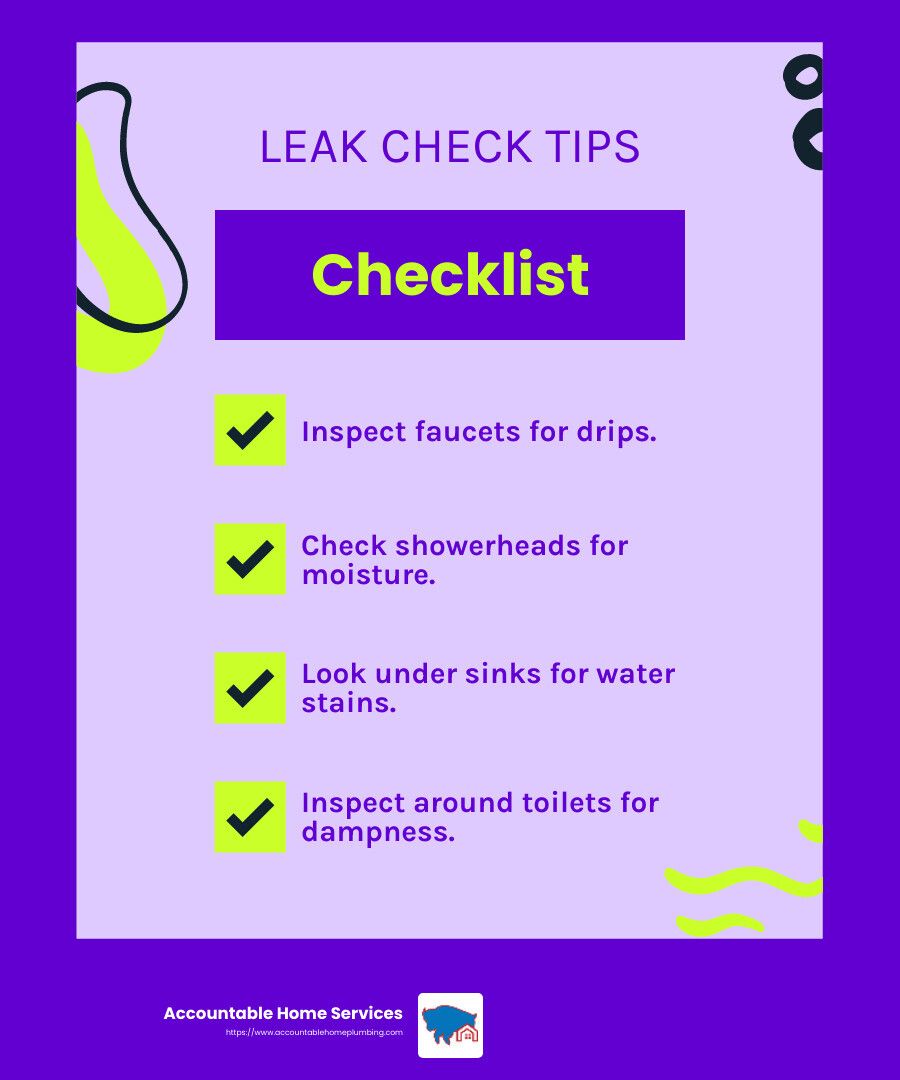
Drain Screens
Clogged drains are another frequent issue that can be easily avoided. Install drain screens in your sinks and showers to catch hair, food particles, and other debris. These simple devices are inexpensive and can save you from dealing with stubborn clogs.
- Tip: Clean the screens regularly to ensure optimal performance.
Water Heater Maintenance
Your water heater works hard to provide hot water for your home. Keeping it in good shape is crucial for efficiency and longevity.
- Flush the Tank: Sediment can build up in the tank, reducing efficiency. Plumbers recommend flushing the tank annually to remove this buildup.
- Professional Inspection: Have a plumber inspect your water heater each year to check for rust, broken valves, and other issues.
By incorporating these routine plumbing maintenance tasks into your schedule, you can avoid many common plumbing issues and ensure your system runs efficiently. A little maintenance goes a long way in preventing costly repairs and keeping your home comfortable.
Next, we'll explore how to adapt your plumbing maintenance routine to seasonal changes, ensuring your system is prepared for any weather challenges that come your way.
Seasonal Plumbing Maintenance Tips
As the seasons change, so do the challenges your plumbing system faces. Adapting your routine plumbing maintenance to address these seasonal changes can prevent costly repairs and keep your home safe and dry. Here are some key areas to focus on:
Pipe Insulation
In colder months, exposed pipes are at risk of freezing. When water inside a pipe freezes, it expands, potentially causing the pipe to burst. This can lead to extensive water damage and expensive repairs.
- Insulate Pipes: Use pipe insulation or heat tape to protect exposed pipes, especially those in unheated areas like attics, basements, and garages.
- Seal Cracks: Make sure to seal any cracks or openings in your home to prevent cold air from reaching your pipes.
Sump Pump Testing
If your home has a basement, you likely have a sump pump to prevent flooding. But a sump pump is only effective if it’s working properly.
- Test Regularly: Pour a bucket of water into the sump pit to ensure the pump activates and efficiently removes the water.
- Backup Power: Consider a battery backup for your sump pump, especially in areas prone to power outages during storms. This ensures your pump continues to work even if the power goes out.
Tree Root Protection
Tree roots can cause significant damage to your plumbing system by infiltrating pipes and causing blockages.
- Plant Wisely: Keep trees and shrubs away from plumbing lines. Their roots can grow into the pipes, leading to blockages and damage.
- Use Root Barriers: Installing root barriers can help protect your pipes from encroaching roots.
By incorporating these seasonal plumbing maintenance tips into your routine, you can protect your plumbing system from seasonal challenges. This proactive approach helps ensure your home remains safe and comfortable, regardless of the weather.
Next, we'll dig into advanced plumbing maintenance strategies that can further improve your system's efficiency and longevity.
Advanced Plumbing Maintenance Strategies
When it comes to routine plumbing maintenance, going beyond the basics can make a big difference. Here are some advanced strategies to improve your plumbing system's efficiency and longevity.
Water Softeners
Hard water can cause mineral buildup in pipes and appliances, reducing their efficiency and lifespan. Installing a water softener can help.
- Benefits: Water softeners remove calcium and magnesium, the minerals responsible for hard water. This not only extends the life of your appliances but also improves water flow.
- Maintenance: Regularly check and replenish the salt in your water softener to ensure it functions properly.
Water Pressure Regulation
Excessively high water pressure can strain your pipes and fixtures, leading to leaks and damage over time.
- Check Pressure: Use a pressure gauge to measure your water pressure. Ideally, it should be between 40-60 psi. If it's consistently above 80 psi, it’s time to take action.
- Install a Regulator: A pressure regulator can help maintain safe water pressure levels, protecting your plumbing system from unnecessary stress.
Aging Plumbing
Older homes often have outdated plumbing systems that are more prone to leaks and corrosion.
- Assess Condition: If your home has old plumbing, have a professional plumber assess its condition. They can identify potential issues before they become major problems.
- Upgrade Materials: Consider upgrading to modern plumbing materials. Newer pipes are more efficient and less likely to corrode or leak.
By implementing these advanced strategies, you can significantly improve the reliability and efficiency of your plumbing system. Next, we'll answer some frequently asked questions about routine plumbing maintenance to further guide you in maintaining a leak-free home.
Frequently Asked Questions about Routine Plumbing Maintenance
What is regular plumbing maintenance?
Regular plumbing maintenance involves a series of proactive steps to keep your plumbing system running smoothly and efficiently. This includes leak inspections, professional maintenance visits, and routine checks to prevent major issues before they occur.
- Leak Inspections: Regularly checking for leaks can prevent small problems from turning into costly repairs. Look for signs like water stains under sinks or around fixtures.
- Professional Maintenance: Hiring a professional plumber to conduct regular inspections ensures that potential issues are caught early. They have the expertise to spot problems that might go unnoticed.
How often should a plumber come to your house?
A routine plumbing maintenance schedule should include at least one professional inspection per year. Annual inspections help catch wear and tear that could lead to bigger issues.
- Annual Inspections: These visits allow plumbers to check your system's overall health, including pipes, fixtures, and appliances. They can also perform necessary maintenance tasks.
- Maintenance Schedule: Consider creating a maintenance calendar to keep track of when inspections and specific tasks, like drain cleaning and water heater flushing, should occur.
What should be included in a plumbing maintenance checklist?
A comprehensive plumbing maintenance checklist ensures all critical areas are covered. Here are some key components:
- Faucet Checks: Inspect faucets for drips or leaks. Even a small leak can waste a significant amount of water over time.
- Drain Cleaning: Regularly clean drains to prevent clogs. Use drain screens to catch hair and debris.
- Water Heater Flushing: Flush your water heater every six months to remove sediment buildup. This helps maintain efficiency and prolongs the unit's lifespan.
By following these guidelines, you can maintain a healthy plumbing system that minimizes the risk of unexpected issues.
Conclusion
At Accountable Home Services, we believe in the power of proactive measures to ensure a reliable plumbing system. Our routine plumbing maintenance services are designed to catch small issues before they turn into costly disasters. By scheduling regular inspections and maintenance tasks, you can protect your home from unexpected plumbing problems.
Why Choose Accountable Home Services?
- 24/7 Availability: Plumbing emergencies don't wait for convenient times. We're here for you day or night, ready to tackle any issue that arises.
- Upfront Pricing: With us, you'll never face hidden fees. Our transparent pricing ensures you know exactly what to expect, every time.
- Comprehensive Services: From leak detection to water heater installations, our team is equipped to handle all your plumbing needs across the Denver Metro area, including Broomfield, Westminster, and more.
Taking proactive measures with your plumbing system isn't just about avoiding problems—it's about peace of mind. With Accountable Home Services, you have a partner dedicated to keeping your plumbing running smoothly and efficiently.
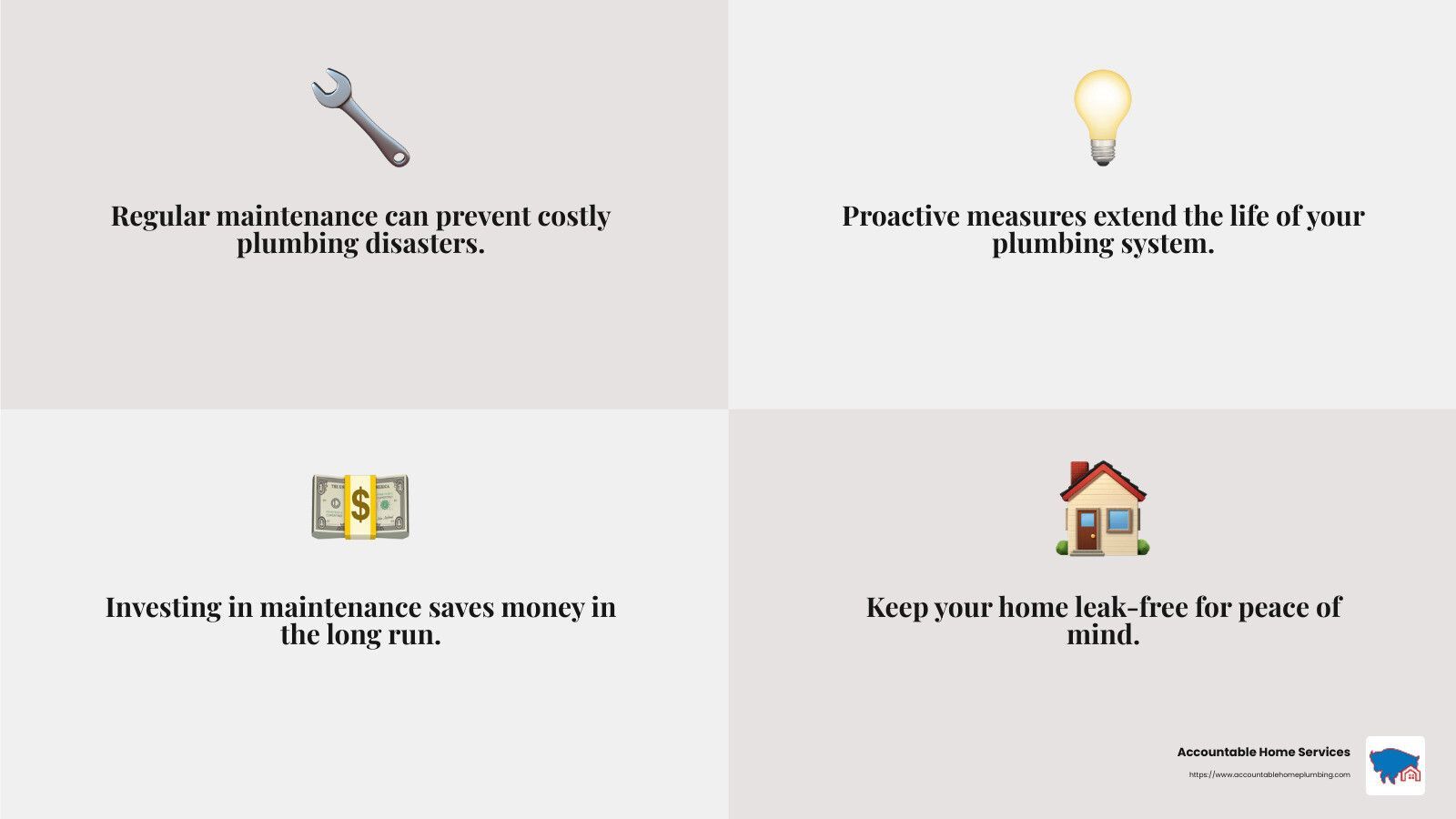
By investing in regular maintenance, you're not only extending the life of your plumbing system but also saving money in the long run. Trust us to keep your home leak-free and your plumbing reliable. Contact us today to schedule your next maintenance appointment and experience the difference of expert care.

